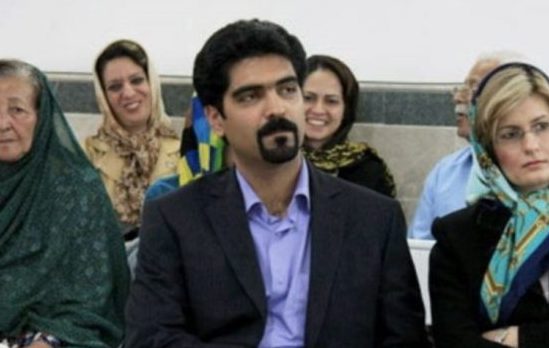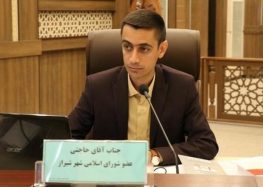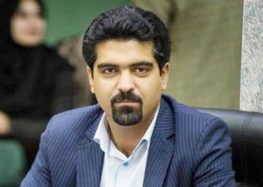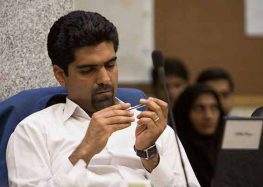Supreme Administrative Court Blocks Judicial-Parliamentary Agreement to Reinstate Zoroastrian City Council Member
 The Supreme Administrative Court in Tehran has blocked an agreement by the speaker of Parliament and the head of the judiciary to reinstate Sepanta Niknam, a member of the Zoroastrian faith, to the Yazd City Council.
The Supreme Administrative Court in Tehran has blocked an agreement by the speaker of Parliament and the head of the judiciary to reinstate Sepanta Niknam, a member of the Zoroastrian faith, to the Yazd City Council.
On November 8, 2017, President Hassan Rouhani’s chief of staff, Mahmoud Vaezi, told reporters that an agreement had been reached between the legislative and judicial branches of government to allow Niknam to resume his post.
“Parliament has reached a good agreement with the judiciary, which basically says that Mr. Niknam should continue his work until the law is changed,” said Vaezi. “That has always been the government’s view as well.”
A day later, the Supreme Administrative Court announced Niknam was still suspended.
“We hereby announce that the ruling issued by Branch 45 of the court remains valid and that the judiciary chief has not issued any order to the contrary,” said a statement by the court issued on November 9.
Hamidreza Hajibabaeei, the chairman of the conservative block in Iran’s Parliament, has stated that the dispute must be quickly resolved at the highest level.
“We have bigger problems than this,” he told the semi-official Iranian Labor News Agency (ILNA) on November 9. “The authorities should step in and resolve this as soon as possible. If we need a new law, Parliament can take action. If not, then the EDC should get involved.”
Niknam, the 32-year-old chairman of the Zoroastrian Association in the city of Yazd, was re-elected to the local city council in May 2017. In September, he was suspended by an Administrative Court in Yazd after Ali Asghar Bagheri, a Muslim candidate who failed to receive enough votes to win a seat on the council, lodged a complaint against Niknam.
The court’s ruling was based on a declaration by the Guardian Council’s ultra-conservative chairman, Ali Jannati, in April 2017 barring non-Muslims from standing as candidates in Muslim-Majority constituencies.
The Guardian Council, which determines legislative compliance with Islamic law, stated in 2017 that the Law on the Formation, Duties, and Election of National Islamic Councils is un-Islamic because it permits followers of all religions recognized in Articles 12 and 13 of the Constitution—Islam, Judaism, Christianity, and Zoroastrianism—to run as candidates in elections.
Before the Supreme Administrative Court in Tehran issued its ruling, the spokesman for the Tehran City Council, Ali Eta, said on November 6 that President Rouhani told members of the council that he had written a letter to Khamenei stating that the suspension was illegal and against national interests.
On November 7, Mohammad Javad Koulivand, the chairman of the Parliamentary Committee for Councils and Domestic Affairs, predicted that Niknam would return to the Yazd City Council.
“There has been some communication with the judiciary chief and it has been decided that the Administrative Court’s ruling will be put on hold to enable Sepanta Niknam to participate in Yazd City Council meetings until the law is changed,” he said.
Koulivand added that one of the proposed changes to the law is to allocate a permanent city council seat to religious minorities in cities and towns where they have a significant population.
Now the issue may require a resolution by Supreme Leader Ali Khamenei or the Expediency Discernment Council (EDC).
Article 112 of Iran’s Constitution grants the EDC the authority to resolve disputes when the Guardian Council and Parliament cannot agree on legislation.






